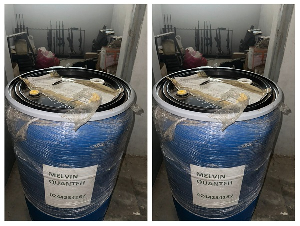Now let us validate the claim that the majority decision of the Supreme Court doesn’t make the best sense out of the whole.
Decision, not comprehensive enough
A “contextual analysis” that primarily focuses on article 218 to divine the meaning of article 218(a) assumes too much. First, it assumes that article 218 provides a coherent, consistent, and ascertainable context. We don’t also know whether this context is a micro or a macro-context, and which principles should guide us in delineating what context to use in the future. Secondly, it assumes that the drafters of Chapter 18 of our Constitution wanted the arrangement of the articles to bear on the meaning of the powers of CHRAJ. Thirdly, the kind of contextual analysis the CJ did, ignored too many relevant considerations.
She provides no response to the argument of Mr. Nene Amegatcher that a historical account of the proposals for the establishment of the Office of Ombudsman/CHRAJ amply demonstrates that CHRAJ could initiate an investigation without a formal complaint, just like the Office of the Ombudsman under the 1969 Constitution. Moreover, when section 11 of the transitional provisions of our Constitution talks of the “office of the Ombudsman in existence immediately before the coming into force of the Constitution” it in no way suggests the powers of CHRAJ don’t include the powers of the Ombudsman. As lawyers for CHRAJ argued and as impeccably elaborated upon by Justice Dateh-Bah in his minority opinion, the power of the Ombudsman (now CHRAJ) to initiate an investigation can’t be said to have been taken away by article 218(a).
The majority opinions, without any direct comments, completely ignored the claim that the proposals for the establishment of the Office of the Ombudsman under the 1969 Constitution suggest CHRAJ could initiate investigations without a formal complaint by an identifiable complainant.
One other puzzling statement from the CJ was to the effect that the exercise of power has to be construed narrowly. In her own words:“…powers must be interpreted as strictly as possible ,consistent with the words, and with the presumption not being construed in favor of power, in the case of doubt”. But this is an erroneous view of the matter. Besides the Interpretation Act, there is at least one constitutional provision that flies in the face of this claim. Article 297 states in part that “ in this Constitution and in any other law …where a power is given to a person or authority to do…an act or a thing, all such powers shall be deemed to be also given as are necessary to enable that person or authority to do …the act or thing”. I am doubtful whether this provision means that powers should be construed “as strictly as possible”. To my mind, it means powers should be reasonably construed to give effect to the purpose of the power.
Decision, inconsistent and incoherent
Assuming we did a contextual analysis of article 218 as the CJ suggests we do, we get a scheme that lacks “systemic coherence”, leading to inconsistency in the application of the “complainant theory” advocated by the majority of the Supreme Court. Article 218(a) reads in part: “investigate complaints of …corruption …by a public officer in the exercise of his duties”. Article 218(e) also reads in part: “investigate all instances of alleged or suspected corruption and the appropriation of public moneys by officials …” The CJ thought that 218(e) “is the place for media and public fora allegations”.
In effect, we have two initiating processes for corruption investigations. One is a complaint by an identifiable complainant under article 218(a).The other initiating process for corruption investigation through “ media and public fora allegations” requires no complaint by an identifiable complainant. The reason for this remarkable distinction is that unlike article 218(a), article 218(e) uses the word “complaints”. This is a quintessential example of legal formalism or neo-formalism.
What happens when CHRAJ initiates a corruption investigation base on media allegations under article 218(e) but does not establish corruption from the evidence? Rather, there is overwhelming evidence of violations of fundamental human rights, injustice, abuse of power and unfair treatment. These are article 218(a) categories, which the SC says they ought to be formal complaints by identifiable complainants. Should CHRAJ fold its arms and say these are matters that it can only deal with when there is a formal complaint from an identifiable person? Can CHRAJ make rules for the purposes of article 218(e) with the effect of giving itself power to deal with article 218(a) categories when they spring up from cases started under article 218(e)? To achieve consistency and coherence in the distinction between corruption investigations under article 218(a) and 218(e), these must be some of the critical issues the majority should have considered.
Unbalanced policy reasons
The lead opinion of CJ Wood pointed an apocalyptic scenario of the denudation of our civil liberties when CHRAJ could investigate corruption, abuse of power, etc allegations without a complaint by an identifiable complainant. She suggests that it would lead to arbitrariness, discrimination and harassment. In addition, CHRAJ would have to do daily monitoring of newspapers etc from Accra to Tumu in search of matters to investigate. This would be too onerous for CHRAJ, she said. Perhaps, the CJ and Counsel for Dr. Richard Anane, Mr. J.K Agyemen, were exaggerating for maximum effect. The CJ concentrated on the negative effects of CHRAJ’s power to investigate. She didn’t mention any positive effects, if any, of recognizing CHRAJ’s power to conduct investigations of corruption on its own, and then engage in some social cost-benefit analysis to determine which side of the pendulum, should hold sway. As Justice Date-Baah ably demonstrates the power of CHRAJ to initiate investigations won’t be any different from the powers the police have on their own to initiate investigations. It is a “controlled risk” in light of the various guarantees on civil liberties we have in our Constitution.
Our constitution, anti-corruption document
Our Constitution by its structure and institutions is an anti-corruption document. Deciding CHRAJ has the power to investigate cases of corruption without a formal complainant by an identifiable complainant better serves the anti-corruption character of our constitution. What does an innocent victim of media allegations of corruption lose when CHRAJ has the power to initiate corruption investigations? Does she lose any legal rights? If the media allegations of corruption prove to be false, is the affected person without legal relief? We haven’t scrapped our civil libel laws! Whatever benefits our democracy receives from the requirement of a complaint by a formal complainant; it is disproportionate to the benefits to good governance we obtain when CHRAJ has extensive powers to investigate allegations of corruption and abuse of power.
Our history of corruption
The history of politics in our country has largely been the history of corruption and abuse of power. Instead of the powers of state being used to serve the commonweal, these powers are seized to serve parochial and specialized interests. We only need to refer to reports of the various commissions/committees of inquiries set up before and after independence to catch glimpses of how corrupt some of our politicians and civil servants have been. We destroyed our state industries and institutions through corruption and mismanagement. If there is one thing we need to work on day-in and day-out, it is corruption and abuse of power, which is our biggest national security threat. And we cannot do this effectively without adopting and promoting an institutional arrangement that is anti-corruption. As Justice Dateh-Baah said, CHRAJ ought to be proactive and not merely reactive to issues of human rights violations, corruption, and abuse of power.
Contemporary legal consciousness
Legal consciousness has undergone changes over the centuries. My legal consciousness refers to my understanding of the nature, functions and operation of law. In legal reasoning, there have been gradual shifts from legal formalism to instrumental/teleological reasoning. The shift meant that the law ceased to be viewed as having essences of their own that can be divined through “contextual structural analysis” of legal provisions. Fidelity to legal rules in legal formalism meant the application of legal rules with little or insufficient consideration to the values legal rules were meant to serve. Neo-formalism goes a step beyond formalism but it is no better.
With neo-formalism, legal concepts, vaguely defined and laden with judicial rhetoric, are elaborated upon in such as way as to give the legal necessity to decide in particular ways. But the critical mind can easily see through the façade of “legal necessity”. When formalist reasoning was demonstrated to be inadequate and to constitute an abuse of deduction because legal rules can veer off in any direction, and what was often at stake in resolving legal questions was policy, there was a shift to instrumental/teleological reasoning. This is sometimes called the functional approach. This form of reasoning sees the law as serving certain values. And it is the function of law and judges to serve those values.
The difficulty with purposive/instrumental or teleological reasoning, however, lies in always agreeing on and identifying the values the law is meant to serve. Our Constitution thinks we are capable of undertaking this exercise. Our Constitution, particularly the directive principles of state policy in Chapter 6, sets forth some of these values and standards in great detail as guides to all of us, including the judiciary. The challenge for the legal community is to work out a scheme for the practicalization of these values in our Constitution.
Justificatory approach to constitutional interpretation
Contemporary legal consciousness also requires a justificatory approach to constitutional interpretation. Instead of invoking legal rules, decided cases or doing “contextual structural analysis”, we justify judicial decisions in terms of our values in light of our history, the structure and philosophies underpinning the law. This to my mind is what Justice Date-Bah in a number of cases terms “the objective-purpose”.
When we are confronted with legal issues involving conflicting sets of values, we do a social cost-benefit analysis. We can learn from the experiences of other countries, where clear rules for ranking values and purposes have been developed. Other times, we don’t have to do any social cost-benefit analysis because the rules in themselves have been proved to be embodiments of the values they serve, and which we want to promote. When we apply the rules because we feel they are the embodiments of the values our legal system cherishes, we have a duty to so explain.
Sometimes, a legal analyst gets the impression of the expedient exploitation of legal rules to decide court cases. This subverts a core tenet of the rule of law: “pre-established procedures that ensure regularity and predictability in the application of the law”. The issue is not whether you have given reasons for your decision. Rather, the issue is whether your opinion makes the best sense out of the whole in light of permissible legal options you failed or neglected to explore.
Religious references
Religious neutrality in matters of policy and governance is a foundation of our constitutional dispensation. In some countries, there are established religions as part of the legal or constitutional set-up. These countries might accord special favors to one religion but not the other. In our constitutional system, all religions enjoy the same rights and privileges subject to the general requirements of our laws. The state cannot impose on the citizenry an ideology of a religious nature. In matters of religion or faith, some Ghanaians might choose to be atheists or agnostics if they so desire. It is their choice. They might also choose to join any religion they want. By the secular tenets of our Constitution, it is not appropriate, jurisprudentially speaking, for our judges to be making religious references when deciding cases based on secular law. It sets bad precedents.
If this practice persists an agnostic judge or a judge who is follower of African Traditional Religion, might quote from Darwin’s Theory of Evolution of the Species, Albert Einstein’s comments on religion, or the sayings of Antoa Nyamaa,Babalawo, Maame wota, or the teachings of the Africania Mission, to draw inspiration for her judgments. That is a slippery slope we are better off avoiding.
Conclusion
The opinion of Justice Dr. Date-Baah in the Anane Case is to be preferred to that of the majority. Unlike the majority opinions, Justice Date-Baah tackles all the relevant issues raised by the parties to the case. I believe his reasoning offers a better pathway that consistently, coherently and comprehensively deals with all relevant considerations. The majority cast their legal vision too low, and in the process they “re:Akotoed” the Anane Case! Perhaps, it is appropriate to conclude with a quote from the opinion of Justice Date-Baah in the Anane Case: “…I am deeply mindful that this is a ‘timorous soul’ or ‘bold spirit moment’….I am on this occasion inclined to be a bold spirit and not succumb to what would be a stunning failure of strategic vision of Re: Akoto…dimensions.” True to his words, Justice Date-Baah was indeed a bold spirit .His Lordship was right! I also believe the Supreme Court re: akotoed the Hon. Dr. Richard Anane Case.












